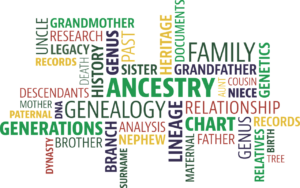Lori Stanley Roeleveld's Blog, page 17
February 13, 2020
When You’re a Leader in Crisis (and nobody knows)
 You’re in trouble and you know it. But, you’re the only one who does.
You’re in trouble and you know it. But, you’re the only one who does.
Others suspect, but it’s not something they’re addressing because you’re the one they look to for their answers. Plus, you keep telling them you’re fine.
You’re a leader, teacher, pastor, head of the ministry team, head of the family, missionary, elder, parent, doctor, first responder, communicator, personality, or worse –
You’re their rock. Their strong shoulder. Provider. Advisor. God-knower, vision-setting, prophesying role model. The dependable one. Faithful. Confident. Sure.
And your thing is transparency. You’re no hypocrite. You cut your ministry teeth on authenticity. You share your failings. Lead by example. Walk the walk.
Sure, but now you’ve taken a hard hit. You didn’t see it coming but it came. Something wormed its way over the transom of your prayers, and you are one hurting unit. Blindsided. Down for the count.
Maybe it was a death or a disappointment. An unanswered prayer or an unrepentant prodigal. A loss or a letdown. A disaster. A scandal. A rejection. An assault. A private dream deferred, or a public plan undermined.
And you’re a hurting unit. Really hurting. Like, how will you get out of bed tomorrow wounded. Like what is there to hope for in the future tested. Like you never really understood certain terms from the Psalms and spiritual literature until now – brokenhearted, downcast, dark night of the soul.
You know the answers. You teach them enough. Speak them to others in their dark nights. You’ve expounded on the answers in essays, sermons, retreat talks, keynotes, heck, some of you wrote the books on the answers.
sermons, retreat talks, keynotes, heck, some of you wrote the books on the answers.
You haven’t lost faith, but you’ve definitely sprained it (where are those soul crutches when you need them?). You read your Bible. You pray. But life has lost some luster, there’s a missing dimension, and what was once joy now feels like sleepwalking through thigh-high swamp water.
Who do you tell? Authentic transparency makes sense until this moment. Not like you can stand before a room of people waiting to hear God’s Word, His truth, His hope and moan about your inner turmoil. Who will that serve?
And suddenly, there you are, the most public person in the place, all eyes on you, but poof, you’re invisible.
King David faced this. His son, Absalom, rebelled against his own father. He plotted to steal the throne and did, for a time, dislocate David and his people from Jerusalem, where he carried on a false reign.
That is a pain of one kind. Personal betrayal, public embarrassment, trial by tongue fire. The triple threat.
When Joab led David’s army against Absalom, they prevailed, and Absalom was killed. (2 Samuel 18). Israel is victorious, your crown is secure, but a dead son trumps all recovered crown.
The death of a son when one would have preferred repentance and restoration is another level of pain altogether.
The army returns, victorious, but their leader doesn’t celebrate them, he grieves. And the people are crushed by the king’s anguish and are suddenly ashamed of their victory.
Joab scolds David. He is a leader and the people have done what they were tasked to do – reclaim the thrown and save those oppressed by the rebellious prince. Wipe your tears, David, and show your face. Rise to your role even if your heart is torn for your child who never lost sleep over your agony. And Joab’s not wrong.
 So, yes, it’s not inauthentic to continue to show up for our lives and lead with words of faith and truth, even when our hearts falter within us. This is how we lead. This is how we represent. It’s when we disappear into the public persona behind closed doors that we risk our sanity and our lives.
So, yes, it’s not inauthentic to continue to show up for our lives and lead with words of faith and truth, even when our hearts falter within us. This is how we lead. This is how we represent. It’s when we disappear into the public persona behind closed doors that we risk our sanity and our lives.
Some crises are transient. People give us space to deal with them. They’re understanding and supportive. They bring soup.
But chronic troubles or traumas with lasting impact or long-standing disappointments that resist arrest are maddening because people want us to move on. People don’t understand. And none of us can check out of our lives for months at a time.
So, we must find a space in which to function even when the child within tugs at our shirt tails pleading with us to stay home and hide.
The path to healing and living in truth is found by learning from the lives of those who came before us and who also suffered unbearable, enduring pain:
Stop lying. You’re not fine. Speak the truth to God. Don’t hide from Him or from yourself, in your hours of private prayer.
 David poured out His heart to God without reservation and without editing the anger, sorrow, disillusionment, and pain. God consecrated those prayers for our use in worship. He rejects our sin, not our humanity. Bring your wounds into His light.
David poured out His heart to God without reservation and without editing the anger, sorrow, disillusionment, and pain. God consecrated those prayers for our use in worship. He rejects our sin, not our humanity. Bring your wounds into His light.Take nourishment. Move yourself out of the direct line of fire long enough to catch your breath. Elijah had faith to call down fire from heaven but when it was done, he despaired of life. God sent him to nap, eat, drink, and nap again. Leaders who represent God don’t become God. We have limits. Respect them. Protect them.
Let your inner circle into your pain. Jesus took aside Peter, James, and John in Gethsemane and asked them to keep watch with Him as He prayed. “he began to be sorrowful and troubled. Then he said to them, ‘My soul is very sorrowful, even to death; remain here, and watch with me.’” Matthew 26:37b-38 ESV. Don’t have an inner circle? Find one. Now.
Read a biography of another leader/preacher/missionary who struggled through a great trial. Many believers before us have been pushed by life, warfare, and friendly fire to battle depression and disheartenment. They lived with open wounds and survived. Be instructed by their walk through the valley of the shadow of death so you do not fear.
Seek professional help. Tell your doctor, a spiritual guide, a therapist the depths of your despair. Especially if you’ve had thoughts of suicide or lost all hope that the future will hold any joy. Seek out a support group and discuss your treatment options with someone who knows what they’re talking about. You are not alone.
 Remember that your battle with woundedness doesn’t make you a hypocrite. We cannot save ourselves. Even the greatest firefighter, skilled at rescuing others, cannot save themselves when its their mangled car flipped on its roof on the side of the road. When your soul is disoriented by the spin of events in your life, you’re not a failure if you can’t think your way to healing. Continuing to speak truth to others isn’t hypocrisy, it’s your job. The truth hasn’t changed even if your soul has a sort of passing flu.
Remember that your battle with woundedness doesn’t make you a hypocrite. We cannot save ourselves. Even the greatest firefighter, skilled at rescuing others, cannot save themselves when its their mangled car flipped on its roof on the side of the road. When your soul is disoriented by the spin of events in your life, you’re not a failure if you can’t think your way to healing. Continuing to speak truth to others isn’t hypocrisy, it’s your job. The truth hasn’t changed even if your soul has a sort of passing flu.Watch your self-talk. The negative self-talk leads us deeper into the darkness and opens us up for the temptation to self-soothe in sinful and destructive ways (whatever you just thought of – yeah – like that.) When you beat yourself up in your mind, listen to the words you use and ask if you would stand for anyone you love being spoken to that way. Renounce these words and ask God to help you see you as He does. Writing about our struggles in the third person can give us just enough distance to offer ourselves the compassion we give to others.
Keep a list, just for sanity sake, of foolish things people say to you during this time. Seriously, label a page in your journal “Useless Lines People Spoke into My Situation.” When you write them, forgive the speaker, and chuckle about the words with God, but reject any power they may have had to discourage you.
You will not always feel like this. You are not your wounds. You are an eternal son or daughter of the Most High God who
 reigns eternal and one day, you will see Him face-to-face, and step completely into your true self. Reject the whispered propaganda of the enemy. This will pass, you will remain.
reigns eternal and one day, you will see Him face-to-face, and step completely into your true self. Reject the whispered propaganda of the enemy. This will pass, you will remain.You tell me – I’ve been struggling of late with pervasive wounds that blindsided me. What strategy for coping have I not mentioned that you know – share it in the comments or email me your hard-earned wisdom.
The battle has intensified. No one is immune to fatigue, wounds, confusion, or the trickery of Satan’s subterfuge. We’re all on the frontlines. We all stumble, sometimes we fall, but we don’t have to stay down and we don’t have to let the stumble undermine the work. We can keep showing up for others but we have show up for ourselves, too.
We all stumble, sometimes we fall, but we don’t have to stay down and we don’t have to let the stumble undermine the work. We can keep showing up for others but we have show up for ourselves, too.
Are you at risk of becoming invisible while you’re standing right up front? Speak up. We’ll follow the sound of your voice and help will be on the way.
When You're a Leader in Crisis – and Nobody Knows https://t.co/JPBpwSH0GO #leadershipdevelopment #Evangelicals
— Lori Roeleveld (@lorisroeleveld) February 13, 2020
February 5, 2020
Invisible Women
 Have you ever felt invisible, unseen, overlooked?
Have you ever felt invisible, unseen, overlooked?
I was a bookish, studious, Jesus-loving little girl, so every time I opened a gift from a relative and found a porcelain doll, make-up kit, or glittery pink barrettes, I wondered how I could be so hard to see. Then, as a woman, single well into my twenties, I found myself every guy’s “best friend,” wondering when, oh when, would one of them see my potential to be more.
Shortly after I finally married, I gave birth to my parents’ first grandchild. Imagine my shock when I arrived for a visit to hear, “The baby’s arrived!” As if my infant son drove himself! And, I’m sure I’m not the only mother who felt herself fading into the scenery as her beautiful daughter reached adolescence. My Hannah is a knockout and for a time, I was confident I could commit crimes in her presence with no one able to pick me out of a line-up.
I’ve been passed over at jobs, left off invitation lists, and forgotten by family, at times. And I’ve met others who’ve felt invisible to their faith community because they’re older or they worship while their spouse stays home or they’re just “nothing special” and feel unseen.
While most of us don’t seek fame, or hope for world-wide recognition, it’s hard-wired into our beings to want to be noticed, to be clearly visible to someone. The good news is that God designed us with a desire to be seen because He is the God who sees.
Hagar, the servant girl who conceived Abraham’s first son, must have felt invisible. She slept with Abraham (then Abram) at Sarai’s request, for precisely that purpose, but when the pregnancy became a reality, Sarai mistreated Hagar. Hagar ran, but the angel of the Lord found her in the desert and promised her son a future. The God of the Universe appeared, not only to Abraham, the Patriarch, but also to his servant girl who was only seen for what she could offer. Hagar returned to Abram and Sarai with a renewed sense of identity because she had seen the God who sees.
Our God knows what it’s like to live unseen. He is, after all, invisible. But, even when He arrived in bodily form, John tells us, “He was in the world, and the world was made through him, yet the world did not know him. He came to his own, and his own people did not receive him.” John 1:10-11 ESV
world, and the world was made through him, yet the world did not know him. He came to his own, and his own people did not receive him.” John 1:10-11 ESV
And when we come to this Jesus and find our home in Him, we remember there is nothing to fear from invisibility – it’s the stuff from which we were created – “By faith we understand that the universe was created by the word of God, so that what is seen was not made out of things that are visible.” Hebrews 11:3 ESV While there is pain in feeling invisible, surrendered to God, it just may become our superpower.
The first chapters of Luke’s gospel introduce us to three women who probably felt invisible. Elizabeth lived into her later years without the blessing of a child. In Israel, this would have sidelined her in her community. When God blessed her with a child who would be John, she praises what the Lord has done “when he looked on me.”
Mary was a virgin betrothed to be married, likely only seen by most as a daughter to be married off well, and thus bless her family. When she praises God for blessing her by making her the mother of Jesus, she proclaims that God “looked on the humble estate of his servant.” Both women reveled in knowing they had been seen by the most, high God.
Finally, we read of the prophetess, Anna, who, it is said, lived seven years with her husband before being widowed and then spent every day fasting and praying in the temple into her eighty-fourth year. How many of those years did she imagine herself invisible to all as a widow  simply focused on God? But God saw her and blessed her by allowing her to see the infant Savior.
simply focused on God? But God saw her and blessed her by allowing her to see the infant Savior.
The knowledge that we are not invisible to God is used, too often, as a warning against sin, and not often enough as an encouragement that He also witnesses our private obedience. That we may be invisible to the world, but we only need be seen by God to have value, impact, and eternal worth.
Wasn’t Corrie ten Boom invisible in the concentration camps? Before she was arrested, the invisibility of being a woman in a time where women weren’t seen as powerful, allowed her to rescue many lives. Wasn’t Itzhak Stern invisible – a clerk, a bean-counter, a pencil-pusher – and through this invisibility, he created Schindler’s list that saved hundreds of Jews.
Even nature teaches us that invisibility doesn’t mean powerless. The very invisibility of the powerful corona virus is what has set the world on edge.
“So we do not lose heart. Though our outer self is wasting away, our inner self is being renewed day by day. For this light momentary affliction is preparing for us an eternal weight of glory beyond all comparison, as we look not to the things that are seen but to the things that are unseen. For the things that are seen are transient, but the things that are unseen are eternal.“ 2 Corinthians 4:16-18 ESV
Do you feel invisible? Are you flailing around, investing precious energy trying to be seen? Have you faded into the background of your own life?
Step into His light and remember He sees you. Let His vision restore your faith that living for Him is never in vain and  that the things that are unseen are eternal.
that the things that are unseen are eternal.
“So she called the name of the Lord who spoke to her, “You are a God of seeing,” for she said, “Truly here I have seen him who looks after me.” Genesis 16:13 ESV
Do you ever feel invisible? https://t.co/cyKF4UeLNu It just may be your superpower! #Jesus #invisiblewomen
— Lori Roeleveld (@lorisroeleveld) February 5, 2020
January 30, 2020
Five Ways to Be an Older Woman Younger Women Can Hear
This is the complaint I hear from my contemporaries about the next generations.
Women of a certain age worry about the generations coming up behind us.
We know we have a biblically-ordained responsibility to reach and teach younger women, but we flounder in this task. Largely because we view it as a task to be done, rather than an art to be practiced, an adventure to be lived, an act of love to be expressed with our whole being.
There’s a lot I don’t know about reaching the next generation. (I invite anyone under forty reading this to share your thoughts in the comments.) But, we all have to start somewhere. Certainly, younger generations are responsible to have ears that can ear, but older generations must do their part.
Here are five ways to be older women younger women can hear.
Live a Great Story – If the only Jesus-story or testimony you have to share is three decades old, it’s time to upd
 ate your God-card. What exactly are you doing with this freedom Jesus died to provide?
ate your God-card. What exactly are you doing with this freedom Jesus died to provide?If you’re reading your Bible, praying, obeying, worshiping, serving, giving, and sacrificing, there should be stories. If there aren’t, check in with a mature believing friend and ask God to refresh your assignment.
Don’t get stuck in a lesser story than Jesus designed you to live! Genuine, mature faith deepens like wine. Religious practice alone, like old bread, grows stale with time. Younger women yearn to be part of a great story. Older women living one will earn their attention. Once you have it, invite them to join you.
Vision Forward, Not Back – One of most ignored Bible verses is Ecclesiastes 7:10, “Say not, ‘Why were the former days better than these?’ For it is not from wisdom that you ask this.” Older woman are too often walking in the path of Lot’s wife – so busy looking back they’ve been left behind.
 Travel light into tomorrow. Leave the past where it belongs. They weren’t better days, they were just different. Jesus is in this day and where He is is where we need to be, even when times are hard.
Travel light into tomorrow. Leave the past where it belongs. They weren’t better days, they were just different. Jesus is in this day and where He is is where we need to be, even when times are hard.
God designed you for these times. He designed you to be an older woman in these days. If your focus is the eternal adventure stretching before us, your eyes will be full of light. If your focus is the past, you risk the fate of Lot’s wife, simply a cautionary footnote who ended her future trying to cling to her past. We may not share a similar past with younger generations, but we share today, and we could be friends into eternity, so keep your vision focus forward and you’ll find more opportunity to make connections with youth.
Know Something About the Culture – Seriously, watch a movie made in the past five years. Check out a television show that’s not on TVLand or MeTV. Listen to the radio. Read a best-seller. Explore modern happenings.
If God called you to the mission field, you’d explore the culture. He’s called you to the next generations. Explore their culture – and not like it’s a smelly fish – like it’s a fascinating puzzle. Invite younger women over to binge watch something with them on Netflix or listen to their favorite musical artists. Trade off watching one of their favorite movies followed by one of yours. Ask them what attracts them to their entertainment choices.
favorite musical artists. Trade off watching one of their favorite movies followed by one of yours. Ask them what attracts them to their entertainment choices.
Start a book club and invite the younger women. Switch off book choices by generation. Have a makeover weekend where the younger generation makes over the older and vice-versa. Be teachable, accepting, and curious. That’s a combination that is the foundation of role models. Laugh Easily. Love generously. Re-invent old age.
Be Vulnerable, Available, and Present – No matter how old we get, we’re sinners saved by grace alone. As we mature, we begin to get some things right, but we still fail. We don’t know everything. Forget the fake. Park your pretense. Let your vulnerability surface.
Confess your failures. Tell younger women your fears and needs. Be emotionally available and wholly present with the young woman beside  you. Listen to her. Ask questions. Let time go lightly when she’s around. Be willing to go where she is when she’s available to talk. Younger women don’t want someone who’s perfect, they want someone who’s present.
you. Listen to her. Ask questions. Let time go lightly when she’s around. Be willing to go where she is when she’s available to talk. Younger women don’t want someone who’s perfect, they want someone who’s present.
Start an advice club where women share wisdom across generations. Older women can ask advice about talking with their daughters. Younger women can seek advice about careers, growing in faith, men, managing money. Single women can share counsel across generations. The middle generation can ask advice about dealing with aging parents. Widows can discuss dating with the thirty-somethings. We’ll get past the issues that divide if we don’t hide.
Finally, keep growing up. In this phase of life, we may be seniors, but in the light of eternity, we’ve only just begun. In 2 Peter 1:1-10, he lists eight qualities (faith, virtue, knowledge, self-control, steadfastness, godliness, brotherly affection, and love) that if we have them in increasing measure, they will keep us from being ineffective and unfruitful in our knowledge of Jesus. If we don’t increase in these qualities, we are nearsighted to the point of being blind. Make every effort to grow in these qualities and we’ll be
 effective and fruitful with the generations coming up behind us.
effective and fruitful with the generations coming up behind us.We lose a lot as we age. Here are some things to intentionally lose for the sake of building the kingdom in younger women – fear, a critical spirit, inflexibility, arrogance, hypocrisy, and pretense. We each contribute to the culture of women in the kingdom of Christ. What does it look like in your corner?
Add to my list. Comment with your own ideas about being older women younger women can hear.
Five Ways to Be an Older Woman Younger Women Can Hear https://t.co/wg97Ulqp1J #Evangelicals #seniors
— Lori Roeleveld (@lorisroeleveld) January 31, 2020
January 28, 2020
Against Self-Interest (The Greats Play for Love)
 Professional athletes study the game.
Professional athletes study the game.
They watch game tapes over and over, noting each nuance of those who excel. Then, they take their observations onto the field or the court or the mat, practicing them again and again, so that they might not only replicate the excellence, but also surpass it.
This is the way of those who love what they do. Like Brady. Like Kobe. Dedication. Passion. Study. Work. Practice. Teamwork. Appreciate the crowd but don’t depend on the crowd. Focus.
Have you ever wondered why sports can so easily become an idol? Have you ever wondered why so many of us are drawn to the stands? God is calling to us through our mis-directed obsessions. He is modeling for us through those playing the game that this is the way we should follow Him.
Dedication. Passion. Study. Work. Practice. Teamwork. Appreciate the crowd, but don’t depend on the crowd. Focus.
There’s a story in the gospel of Mark 3:1-6 that touches me deeply because I know it calls out the Pharisee, the religious spectator, in my own soul.
Jesus has begun His ministry and the crowds have swelled around Him because He heals the sick, casts out demons, and preaches repentance. He preaches repentance to every crowd – even those gathered in the synagogue.
repentance. He preaches repentance to every crowd – even those gathered in the synagogue.
And for the Pharisees, the gospel is no good news at all. Jesus’s following is a threat. His teaching is an offense. But the miracles are a problem. What do we do about the miracles? Hmm, maybe they can be useful to our agenda?
In Mark 3, Jesus enters the synagogue. The story starts off like a joke God’s telling over dinner – “My Son, a phalanx of Pharisees, and a man with a withered hand walk into a synagogue.”
It’s a set up.
The man with the withered hand is a plant. We can be such cruel people. Using those in need to test others, to further our own agendas, to demonstrate our personal glory. And here he is. Not a character in a story for a flannel-graph board but a man in need. A man broken. A man with a withered hand.
And it’s the Sabbath.
The Pharisees are faithful to the Sabbath. Allow no work on the Sabbath. Enforce no work on the Sabbath because this is God’s day.
And the work of the Messiah so far has been to heal.
So, Mark tells us the Pharisees watch Jesus.
 That’s what some people, spectating people, do with men and women who excel at a thing. They watch them to see if they’ll slip up. They watch for a fall with plans to use that slip to justify their own lethargy, their own mediocrity, the slovenliness of their own souls. To assure themselves that what the great One is doing, can’t actually be done.
That’s what some people, spectating people, do with men and women who excel at a thing. They watch them to see if they’ll slip up. They watch for a fall with plans to use that slip to justify their own lethargy, their own mediocrity, the slovenliness of their own souls. To assure themselves that what the great One is doing, can’t actually be done.
“See – he wasn’t that great.” “Ha! I knew she wasn’t all that.” “There, see, that’s why I don’t even bother to try. It was sheer arrogance to think you can pursue football/basketball/tennis/God with such devotion and survive.”
Jesus sees the trap, but He’s the only one in the room who knows the trap isn’t for Him, but for them.
He offers them an opportunity for mercy by inviting them into His story. He calls the man to Him and asks the crowd, “Is it lawful on the Sabbath to do good or to do harm, to save life or to kill?”
It’s a question that requires they go deeper into the law of God and touch God’s heart. It’s a question that calls for bravery, for someone who has been paying attention to God – not the opinion of the crowd. For someone who loves what God is about and who is ready to step onto the field beside Him.
They were silent.
“And he looked around at them with anger, grieved at their hardness of heart, and said to the man, ‘Stretch out your hand.’ He stretched it out, and his hand was restored.”
out, and his hand was restored.”
He wasn’t running for Messiah. The true greats, and He is the greatest of all, aren’t seeking the approval of the crowd, the fame, the following – it’s love that drives them.
In our times, a leader would have had to poll the apostles before he focused on the broken hand. He would sense the temperature of the room and try to garner support before performing His miracle. He might even have decided it was better to heal the man after the service.
Because, here’s the thing – Jesus knows what’s going on in the Pharisee’s hearts and He knows that if He heals this man right here, right now, He’s signing His own death warrant.
And then He does it.
He has watched the Father and knows every move His Father would make. He knows His Father does not operate from within His own self-interest. He knows His Father isn’t run by numbers or majorities or religious trends. He knows His Father is love, mercy, compassion,  healing, restoration, redemption, and righteousness. And so is He.
healing, restoration, redemption, and righteousness. And so is He.
This was no small work. The Pharisees go out and conspire immediately with the Herodians against Jesus and plot how to destroy Him.
Jesus knows that His act of mercy in demonstrating God’s great heart will cost Him His life, but He’s not here for His own self-interest, but for love.
Where will we stand today? Will we be clever, reserved, measured, and cynical enough to watch those trying to live the Jesus life, thinking they’re fools, waiting for them to slip or fall?
Are we the broken ones standing between Jesus’ and the religious posers just wanting to be healed?
When we receive His healing, will we embrace it fully? Will we join Him on the field, watch His every move, study, work,  practice, teamwork, appreciate the crowd but don’t play for the crowd, focus on Him who is the Master of All?
practice, teamwork, appreciate the crowd but don’t play for the crowd, focus on Him who is the Master of All?
Make your choice. It matters. Because, this is no joke.
Against Self-Interest (The greats play for love) https://t.co/U2Ft5QMcAz #KobeFarewell #Jesus
— Lori Roeleveld (@lorisroeleveld) January 28, 2020
January 21, 2020
More Dangerous than Demons
 There is a force in our times more dangerous than demons. Fortunately, Jesus demonstrated how to mount a defense against it.
There is a force in our times more dangerous than demons. Fortunately, Jesus demonstrated how to mount a defense against it.
The gospel writer, Mark, is a writer after my own heart. He’s like the Hemingway of the good news of Jesus. To the point. No backstory. Jump us right into the action of Jesus’ ministry.
If you read the first chapter of Mark in one sitting, you’ll be struck by the repeated use of the word, “immediately” or “straight away.” In fact, Mark uses this word over 40 times – seventy percent of the times it’s used in the entire New Testament.
It gives his gospel a sense of urgency, the idea that the ministry of Christ burst onto the scene. While the birth of the Messiah was long awaited (so long many of His people had given up waiting), once He began His work, everything moved faster than anyone ever anticipated.
Immediately upon His baptism, God announces His pleasure with His Son.
Immediately after His baptism, Jesus is lead into the wilderness and tempted by Satan.
Immediately at His call, Simon, Andrew, James, and John followed Him.
Immediately Jesus began teaching in the synagogue on the Sabbath.
Immediately an unclean spirit accosted Him – was rebuked and cast out.
Immediately He entered Simon’s house and healed Simon’s mother.
The immediacy of Mark’s gospel and the power and authority Jesus displayed as He began His work remind me of a verse in 2 Samuel 5:20 NRSV “So David came to Baal-perazim, and David defeated them there. He said, “The Lord has burst forth against my enemies before me, like a bursting flood.” Therefore that place is called Baal-perazim.” (Baal-perazim means the Lord of bursting forth or in some translations breaking through.)
NRSV “So David came to Baal-perazim, and David defeated them there. He said, “The Lord has burst forth against my enemies before me, like a bursting flood.” Therefore that place is called Baal-perazim.” (Baal-perazim means the Lord of bursting forth or in some translations breaking through.)
Jesus burst into ministry with power to draw followers, power to resist temptation, power over demons, power over disease, and unprecedented authority to teach God’s Word because He was the living Word.
At last! Here is One who can free us! Here is the One who can save!
We spend a lot of energy in the church talking about spiritual warfare. Praying against demons and powers and disease. And we should do these things, but it’s interesting to me that it wasn’t demons or diseases that drove Jesus to desolate places.
When Jesus healed Simon’s mother, that evening “the whole city was gathered together at the door.” Jesus healed the sick, cast out demons, and commanded the demons not to speak.
But the crowd. The crowd of humans was a pressing factor in Jesus rising early while it was still dark and going to a desolate place to seek His Father. Here is where He finds the strength to resist the will of the crowd because when Simon finds Him and says, “Everyone is looking for you,” Jesus replies that they should move on to the next towns to keep preaching.”
Next we see Jesus healing a leper and commanded him not to speak to anyone but unlike the demons who are silenced at Jesus’ command, the healed leper talks freely so that Jesus “could no longer openly enter a town, but was out in desolate places,”
Pressing crowds and wagging tongues. We would be wise to devote more prayer to these. Demons are silenced at a word from our Lord. Diseases are healed at His touch. But the mobs and mouths are another story – they drive Jesus to seek His Father and to pull away to desolate places.
 Of course, Jesus could have dispersed the crowds and He could have silenced human tongues, but God has a unique relationship with humans above all His other creations. He chooses to partner with us in the building of His kingdom – hence the calling of fisherman and others who responded as Christ did – with immediate obedience.
Of course, Jesus could have dispersed the crowds and He could have silenced human tongues, but God has a unique relationship with humans above all His other creations. He chooses to partner with us in the building of His kingdom – hence the calling of fisherman and others who responded as Christ did – with immediate obedience.
But He is patient with all – even with those who do not respond, bearing with those who resist Him, wanting all to come to salvation He delays judgment. 2 Peter 3:9 ESV says this: “The Lord is not slow to fulfill his promise as some count slowness, but is patient toward you, not wishing that any should perish, but that all should reach repentance.”
Yes, we should pray against spiritual enemies, hostile forces in the demonic realm, and against disease. But, we should also pray about how we reacted when the crowds press in, how we respond to the chatter of wagging tongues, and we would be wise to routinely seek desolate places to pray.
Does the crowd press in, my friend? Does the crowd pressure you with temptations of every sort? Do wagging tongues and talking heads weary your mind and fray the ends of your soul?
weary your mind and fray the ends of your soul?
Step away with Jesus to a desolate place and be silent, listening for our Father’s voice. He is the whisper who will guide us through the madding crowd.
More Dangerous than Demons https://t.co/nRZ6dFJ76P We may be so focused we're missing a greater enemy! Are you prepared to survive the greatest pressure of our times? #Jesus #LeadershipDevelopment #Evangelicals
— Lori Roeleveld (@lorisroeleveld) January 22, 2020
January 18, 2020
Beware Those Who Rush to Translate the Times (a dispatch from the divided kingdom)
 My husband always wants to know “what’s coming next?”
My husband always wants to know “what’s coming next?”
When we watch a movie together, he’s forever asking – “Who is that guy now? Why are they going in there? What’s up with that decision?”
And I’m forever saying, “How about we just watch and let the story tell itself?”
I get it. The suspense of not knowing, even in a movie, never mind in our actual lives, can be almost too much to bear. But the truth is, that’s how God has designed this feature film we call our lives.
Only He is outside of time. Only He sees around the next corner. Only He can track every sub-plot, entrance, exit, and character arc. He is the author of our salvation.
When we’re making our way through a divided kingdom, there is frequently more intrigue than insight. And unlike in the movies, there are real lives, souls, and hearts at stake, so the suspense is real.
Reading the story of David and two of his sons, Amnon and Absalom, we may be horrified but we may also see plotlines that are as familiar to us as the headlines or our own families.
In 2 Samuel, David at last assumes the throne given him by God. He is king and the ark of God is with him. In the movies, this would be the happy ending. But, the Bible is a true story and true stories reflect the complexities of living in a fallen world.
In chapters 11-12, we find the well-known episode of David’s life when he commits adultery with Bathsheba and betrays one of his mighty  men, Uriah, a warrior comrade, her husband, by having him moved to the front of a fierce battle and all the other soldiers fall away. It’s a haunting story of the capabilities of our hearts when we go astray.
men, Uriah, a warrior comrade, her husband, by having him moved to the front of a fierce battle and all the other soldiers fall away. It’s a haunting story of the capabilities of our hearts when we go astray.
Chapter 13 opens the saga of two of David’s sons. Amnon lusts after his half-sister, Tamar, and arranges to be alone to rape her. Tamar is destroyed and disgraced. Shed lives her life, desolate, in her full-brother Absalom’s household.
David leaves the crime largely unpunished (conflicted about his own history?), but Absalom waits two years and then avenges Tamar. Absalom has Amnon murdered and then flees into exile. Eventually, Joab, David’s primary general, orchestrates Absalom’s return from exile.
Absalom repays his father’s invitation to come home by flattering and conniving to take the kingdom from David. David flees with his household and sets strategies in place (leaving a trusted servant behind as a spy, for example) to try to increase the chances of a good outcome.
In the chaos of family and political upheaval, there will be those who try to play both sides, some who will accuse, others who will betray, and some who will demonstrate impressive faithfulness. We see all these here. But, at the heart of this historical episode, is a poet/shepherd/king who refuses to clutch at quick answers and instead, allows God’s story to tell itself.
“Then the king said to Zadok, ‘Carry the ark of God back into the city. If I find favor in the eyes of the Lord, he will bring me back and let me see both it and his dwelling place. But if he says, ‘I have no pleasure in you,’ behold, here I am, let him do to me what seems good to him.’” 2 Samuel 15:25-26
To live in the divided kingdom is to leave with a keen awareness of our own sin and its consequences, the sinfulness of others (even those we love), but also the mercy, love, and faithfulness of the living God.
 It is to know we have limited understanding. It is to take wise action and to make sound decisions.
It is to know we have limited understanding. It is to take wise action and to make sound decisions.
And yet, it is also to know that ultimately, outcomes rest in the hands of our God and can be affected by a myriad of factors including the choices of others and God’s Sovereign plan.
It is to trust that God sees us and holds us in the palms of His hands but that the greater story is not about any one of us, but about all of us and God’s glory.
David is no stranger to betrayal or to suddenly fleeing an enemy who was once a friend. He trusts God, but he suffers, too, with a vulnerability that still resonates with us in the Psalms.
Psalm 143:11-12 ESV reads, “For your name’s sake, O Lord, preserve my life! In your righteousness bring my soul out of trouble! And in your steadfast love you will cut off my enemies, and you will destroy all the adversaries of my soul, for I am your servant.”
In David we see that God rejects our sin, but He never despises our humanity.
We all want quick answers. We each cry out, when our story takes a wrong turn, for understanding, insight, and guidance. We all ask why.
But, like David, we can rest – not in knowing the answers, not in seeing the why’s and the what’s nexts, but in the Great Who. Our God is with us. Our God will never leave us nor forsake us.
We may endure the consequence of sins from which we’ve repented trusting that at the end of the day, we are more than conquerors in Christ Jesus.
Beware of those who rush to translate the times. Beware of those who tell you they know the whys and the what’s nexts. God warns us that as we draw closer to His return, false prophets will appear on every corner (even now we hear them screaming from every screen.)
God warns us that as we draw closer to His return, false prophets will appear on every corner (even now we hear them screaming from every screen.)
Take counsel from David who, though he loved God and had a heart after Him, didn’t presume to know what was around the bend. He lived in the now, not wasting energy on presuming the future, but consulting the Father – trusting God’s story to tell itself.
He rested not in forecasts but in His Father God. And so do all who wisely navigate through divided kingdoms.
Beware Those Who Rush to Translate the Times (a dispatch from the divided kingdom) https://t.co/DPBJhWJvMy #Evangelicals #Jesus #Prophecy
— Lori Roeleveld (@lorisroeleveld) January 18, 2020
January 15, 2020
The God Who Also Gives (another dispatch from the divided kingdom)
 Another dispatch from the divided kingdom:
Another dispatch from the divided kingdom:
“You have no right to be happy,” the gentleman said to me.
“I’m sorry, what?” I was a taken aback by his opposition to my worship that morning.
“You were raising your hands and smiling. Don’t you know our church is split right down the middle? Don’t you know we’re coming apart at the seams? Don’t you care? This is no time to celebrate!”
This is where he and I disagreed.
I did, in fact, know the truth of what he described.
I’d never been through a church split before that one and pray I never endure one again. Nasty business, that. He misunderstood my celebration, my joy in worship.
I wasn’t happy. I’d never cried so many tears over a church! Still, in the midst of the turmoil, God had touched my heart through His Word, through music, and through the message and He’d restored my soul. So, I celebrated Him from my pew.
The joy of the Lord is our strength. No one can take this from us. This joy isn’t situational. We don’t earn it or deserve it. It’s a gracious gift from our Father and it can help us survive the divided kingdom.
David knew about divisive times, but still, he danced before the Lord.
The kingdom of Israel had divided, for a time, following the death of Saul. Some followed Saul’s son who set himself up as king. Others acknowledged David’s anointing to the throne. When David finally brought the ark of God into the city of David, he celebrated before the Lord.
David’s wife, Michal, daughter of Saul, watched from a window. They had a long and ragged history, these two. Their relationship status chiseled onto Old Testament Tabletbook reads, “It’s complicated.”
To say the least. Their relationship represents how insidious it is living in the divided kingdom because it doesn’t just divide parties and powers, it divides families – brothers from brothers, husbands from wives, parents from children.
2 Samuel 6:16 ESV says, “As the ark of the Lord came into the city of David, Michal the daughter of Saul looked out of the window and saw King David leaping and dancing before the Lord, and she despised him in her heart.”
 How can he celebrate? He looks like a fool. Doesn’t he know how a king should act? He’s completely debased himself. Everyone was watching. He wasn’t even properly robed. It’s fine to be devoted to one’s God but seriously, there’s no need to be a fanatic. What will people think? It’s undignified. And doesn’t he know some are still grieving those they lost in battle? Doesn’t he know the kingdom is facing hard times? Doesn’t he even consider what people will think of us?
How can he celebrate? He looks like a fool. Doesn’t he know how a king should act? He’s completely debased himself. Everyone was watching. He wasn’t even properly robed. It’s fine to be devoted to one’s God but seriously, there’s no need to be a fanatic. What will people think? It’s undignified. And doesn’t he know some are still grieving those they lost in battle? Doesn’t he know the kingdom is facing hard times? Doesn’t he even consider what people will think of us?
When we live in divided times, even our celebrations can draw criticism and anger.
But, God calls His people to celebrate. He wove feasts and celebration into the fabric of His people’s lives. There is a time for mourning, but there is also a time to dance.
David’s son, Solomon, who would rule Israel during hard, hard times wrote in Ecclesiastes 3:4 ESV that there is “a time to weep, and a time to laugh; a time to mourn, and a time to dance;”
Even amid conflict, hardship, and division, the human heart must make room for joy. We must laugh to lighten our hearts, or they can break. We must dance to release the sorrow and pain, to celebrate the One True God who carries us through, to honor Him who never leaves us nor forsakes us.
The danger inherent in divisive times is that we become cynical, too full of ourselves, or too afraid to be vulnerable, transparent, or genuine – to almost become like stone. Music and dance and food and drink and good company and worship and joy remind us that our God takes away, but He also gives. He is a good God who gives good things. And life will not always be this heavy because we are destined for more.
to almost become like stone. Music and dance and food and drink and good company and worship and joy remind us that our God takes away, but He also gives. He is a good God who gives good things. And life will not always be this heavy because we are destined for more.
It is the spirit of the age to scoff. Didn’t we hear it in Judas’ voice when he disdained the offering of the woman who poured oil on Jesus and washed His feet with her hair? Judas’ sounds so pious and righteous, as if he’s actually thinking about the poor, when really this woman’s devotion to Christ, her celebration of Him as He neared His betrayal, only highlighted to Judas the deficit in his own soul.
And therein lies the rub. Those lacking Christ are more than empty – their souls function as vacuums and they would Hoover our joy away, too, if that were possible.
Michal is the poster child of our times – pouting, petulant, self-absorbed, sneering, self-conscious, arrogant, and unkind. Jesus said it this way, “‘But to what shall I compare this generation? It is like children sitting in the marketplaces and calling to their playmates, ‘We played the flute for you, and you did not dance; we sang a dirge, and you did not mourn.’ For John came neither eating nor drinking, and they say, ‘He has a demon.’ The Son of Man came eating and drinking, and they say, ‘Look at him! A glutton and a drunkard, a friend of tax collectors and sinners!’ Yet wisdom is justified by her deeds.’” Matthew 11:16-19 ESV
In other words, your mother was right – you can’t make everyone happy. If you only dance to the tune of these times, you’ll dance to the  demise of your heart and soul and you’ll still never please them all.
demise of your heart and soul and you’ll still never please them all.
Dance, instead, with the Lord of the dance. Weave times of celebration into your life no matter what else you’re facing. Celebrate with a vengeance.
Abscond with joy even in the divided kingdom – not because our situation merits happiness but because joy is our birthright in Christ.
We’re free to dance before Him even as our enemies scoff and plot our downfall because with Him, we will surely dance forever.
Celebrations in divisive times The God who Also Gives https://t.co/fqiX1LpZuD #Evangelicals #Jesus
— Lori Roeleveld (@lorisroeleveld) January 15, 2020
January 8, 2020
Who Would Jesus Trust? (Second Dispatch from the Divided Kingdom)
 This is my second dispatch from the divided kingdom.
This is my second dispatch from the divided kingdom.
Today I awoke with gratitude and it occurred to me that I should also thank God for these divided times. There was a brief period of history when we may have been tempted to place our trust in humanity, in earthly powers, in parties, presidents, personalities, and modern-day prophets.
But God is reminding us of what Jesus knew: “But Jesus on his part did not entrust himself to them, because he knew all people and needed no one to bear witness about man, for he himself knew what was in man.” John 2:24-25 ESV
He is shaking every idol out of every tree and bringing us all to our knees so that we might look up and find the God who saves and say with the Psalmist:
I will praise the Lord as long as I live;
I will sing praises to my God while I have my being.
3
Put not your trust in princes,
in a son of man, in whom there is no salvation.
4 When his breath departs, he returns to the earth;
on that very day his plans perish.
5
Blessed is he whose help is the God of Jacob,
whose hope is in the Lord his God,
6 who made heaven and earth,
the sea, and all that is in them,
who keeps faith forever;
7 who executes justice for the oppressed,
who gives food to the hungry.
The Lord sets the prisoners free;
8 the Lord opens the eyes of the blind.
The Lord lifts up those who are bowed down;
the Lord loves the righteous.
9 The Lord watches over the sojourners;
he upholds the widow and the fatherless,
but the way of the wicked he brings to ruin. Psalm 146:2-9
On the surface, it seems a thin and pitiful existence to put not our trust in other humans and yet, Jesus lived fully in our  midst with his trust and faith invested solely in our Father. This orientation freed Him to love, to listen, to minister, to enter the throng and yet not be ruled by its opinion or its demands, to hold others close and yet, not yield to every temptation those relationships presented.
midst with his trust and faith invested solely in our Father. This orientation freed Him to love, to listen, to minister, to enter the throng and yet not be ruled by its opinion or its demands, to hold others close and yet, not yield to every temptation those relationships presented.
It’s not that we don’t let others close for didn’t Jesus develop deep relationships with the twelve? And when he announced that one of them would betray Him, nothing in how he treated them led them to immediately finger Judas.
It’s not that Jesus was a skillful actor, it’s that His primary trust had a vertical orientation, was tethered to a higher power, was framed within the context of His relationship with His Father God.
This primary trust ran so deeply through His DNA that all other trust was invested with the understanding that it must first filter through the spiritual spine and nervous system that is full confidence and faith in the Creator God.
And if we follow Jesus in this – if every choice we make, every development in our relationships, every word of news, every global happening – if all this we offer first to God before we offer it to our own understanding or submit to the understanding of pontificators and false  prophets – then we will remain steady when the world tips on its axis – as it will as the birth pangs of the end times reach their peak.
prophets – then we will remain steady when the world tips on its axis – as it will as the birth pangs of the end times reach their peak.
In these times, if I turn to one news channel and then another, it is as if they report on alternate worlds. If I turn to one preacher and then another, it’s as if the Bible says different things.
If I build my faith on certain leaders, on friends, on parents or children or kingdoms or philosophies or denominations or celebrities, if I build my faith on any foundation but Jesus Christ, then my faith will implode like a shoddy high rise when the ground begins to shake.
But, if I embed in the foxhole of placing all my trust in Him alone, then I will say along with David, “Some trust in chariots and some in horses, but we trust in the name of the Lord our God. They collapse and fall, but we rise and stand upright.” Psalm 20: 7-8 ESV
In the divided times, David consulted the Lord on every move. “Should we go up to this city?” “Should we fight this battle?” “Should we stay, or should we move?” After the death of Christ, the disciples, too, relied on consulting the Holy Spirit for every decision as their world entered complete upheaval.
Now is the time, not some other. Now is the time to place all your trust in Jesus Christ alone. To develop a habit of reading His Word, of listening to it as you go about your day, of clicking onto it like it’s the Facebook of eternity, of allowing His Word to be the ticker running across the screen of your life, to pin the stories of the gospel to the Pinterest board of your heart, to trust the one channel that has no bias except toward Jesus – the channel of God’s Word opened to our hearts and minds by the Holy Spirit.
Word, of listening to it as you go about your day, of clicking onto it like it’s the Facebook of eternity, of allowing His Word to be the ticker running across the screen of your life, to pin the stories of the gospel to the Pinterest board of your heart, to trust the one channel that has no bias except toward Jesus – the channel of God’s Word opened to our hearts and minds by the Holy Spirit.
Yes, of course, live informed, but to be fully informed, we must be steeped in eternal headlines.
Brace yourself in Christ, loved ones, it’s going to be a bumpy ride.
Who Would Jesus Trust? https://t.co/N9WAimGa1J How do we know who to trust in these divided times? #Jesus #Evangelicals
— Lori Roeleveld (@lorisroeleveld) January 8, 2020
January 2, 2020
Surviving the Enemy within Our Very Borders
 We live in divisive times.
We live in divisive times.
Politically, our country is torn. Spiritually, our people are splintered. Even God’s people form sides, create factions.
Beheadings in Nigeria. Rumors of war with Iran. Threats launched from North Korea. Violence penetrating the walls of our churches and synagogues. Barraged on every side, our greatest enemy lays siege from within and we must guard our hearts above all.
Let me explain.
The murkiest section of scripture has always been for me the time of the divided kingdom in Israel. Full of wayward fathers, sacrificed sons, wooly prophets calling down fire from heaven, liars, idols, foreign gods, brother against brother, wicked queens, and strange alliances, it requires patience and commentary by reliable teachers to understand.
And yet, right now, it is like a roadmap of our times.
And what I have come to understand as I read the struggles of the people of God in that day is that their greatest struggle was within. Those who managed to remain faithful to the ever-faithful God guarded their hearts against pride, counseled with God for every decision, spent time apart from the temptation of power and wealth, and humbly spoke truth even when it cost them.
who managed to remain faithful to the ever-faithful God guarded their hearts against pride, counseled with God for every decision, spent time apart from the temptation of power and wealth, and humbly spoke truth even when it cost them.
The great prophets can guide us in our navigation of these divided times because they are a pattern for flying straight even through dense fog.
In an episode of The West Wing titled The Red Mass, the president meets with a rival senator who isn’t happy with the president’s performance thus far. He tells him a story about new pilots, “I was telling Josh Lyman about a friend who just got his pilot’s license. He told me the most remarkable thing. He said a new pilot will fly into cloud cover. There’ll be no visibility. And they’ll check their gauges, they’ll look at the artificial horizon, it’ll show them level, but they won’t trust it. So, they’ll make an adjustment and then another and another… He said the number of new pilots who fly out of clouds completely upside-down would knock you out.”
The prophets of God know to trust their gauges more than their own perceived wisdom, especially in divisive times. In times of great deception, the horizon can shift like a great heaving sea or like banks of fog. The truth can appear to be a shifting line and yet, if we  trust what we see and hear above God’s Word and sound teaching, our myriad adjustments will have us turned upside down before we know it.
trust what we see and hear above God’s Word and sound teaching, our myriad adjustments will have us turned upside down before we know it.
And so, we must dig into God’s Word as never before. There has never been a generation with less excuse for knowing what God says. We have been assigned to times swimming in translations of the Bible and ways to access it – from our computers to our phones, from audio books to large print, in almost every language imaginable. We must read it, absorb it, study it on whatever level we can manage, listen to sound teaching about it, and then do what it says.
We must be ruthless about addressing our inner pride, which is Satan’s trojan horse to our spiritual health. The only mirror on which we should rely is God’s Word. There is no better way to foster humility than to immerse in it, try to live it, and speak it clearly to others. We’ll foul it up a hundred different ways but that is the training ground on which pride withers and spiritual warriors are refined.
Prayer must become to us like breathing. It is a key instrument on our panel and after we speak, we must quiet ourselves and listen. This will steady the panic when everything in our flesh screams that we must adjust ourselves to the unsteady rise and fall of the culture and the deceptive false prophets of our days. We must listen for the quiet voice of the Holy Spirit and rely on His
 understanding, not our own, to avoid flipping our spiritual lives, our churches, our communities, our entire generation into an upside-down orientation.
understanding, not our own, to avoid flipping our spiritual lives, our churches, our communities, our entire generation into an upside-down orientation.And, we must see ourselves as one with our generation and yet, set apart. We must live in context and yet know that our story extends into eternity and isn’t confined to this one moment. Our eyes must be fixed on a greater horizon for us to be fortified against the temptations of transient wealth and power – of passing popularity and prosperity – of the intoxicating approval of cultural kings and queens who worship at strange altars.
We live in divided times and yet, we are not without hope or guidance. We can fly straight despite the deception that appears in the glass.
And this has been the lot of all who live by faith through every generation, so we are not alone. Our God is with us, just as  He has been and will be forevermore.
He has been and will be forevermore.
I will leave you today with the words written in Hebrews 10:35-39: “Therefore do not throw away your confidence, which has a great reward. For you have need of endurance, so that when you have done the will of God you may receive what is promised. For, ‘Yet a little while, and the coming one will come and will not delay; but my righteous one shall live by faith, and if he shrinks back, my soul has no pleasure in him.’ But we are not of those who shrink back and are destroyed, but of those who have faith and preserve their souls.” (ESV)
Amen?
Our greatest enemy is the one within our borders. How will we survive our #dividedtimes https://t.co/qM5zxXgkls #Jesus #Evangelicals
— Lori Roeleveld (@lorisroeleveld) January 2, 2020
December 23, 2019
Living on Rumors of God
 We live, love, and celebrate the birth of Jesus in times of great division and strife. I’ve recently taken to studying the divided kingdoms of Israel and Judah along with the writing of the prophets of those days. I’ve much to say about this in the weeks ahead, but Jesus is calling me out to play.
We live, love, and celebrate the birth of Jesus in times of great division and strife. I’ve recently taken to studying the divided kingdoms of Israel and Judah along with the writing of the prophets of those days. I’ve much to say about this in the weeks ahead, but Jesus is calling me out to play.
That sounds all wrong, I know. Great questions and issues hammer the church, even today we’ll be reading arguments for and against our brothers and sisters at Christianity Today and their take on the church and the president.
These are important matters and deserve our attention. I take matters of God’s Word and faith very seriously. Jesus reminds me, however, to take myself less so.
You see, when arguments fly through the air and the Internet, my tensions rise and suddenly I’m a child in a room of arguing adults trying to sort through the accusations and innuendos catching only snatches of meaning. I understand  only enough to be afraid.
only enough to be afraid.
This is a sorry position from which to operate.
And, the worst part is that my mind can probably grasp the situation with enough listening and with some explanation, but the child within me will remain afraid without a different type of support. This is why so many our reasoned arguments and explanations have such small affect on the greater mob.
It’s like the moment when Merry and Pippin foolishly set off Gandalf’s greatest firework and the hobbits all fell in fear of the great dragon it became. No explanation would calm their child-like hearts but only seeing it play out as nothing more than smoke and lights would remind them that Gandalf would never deliver them over to true harm.
 Jesus knows the child within my heart. He knows how often she tries to live in a maturity she’s not yet attained. He knows what frightens her, moves her, motivates, and soothes her. He knows her great capacity for knowledge and understanding but He’s also aware that more information doesn’t always entice her out from the great booming echo chamber of the corner of her frightened, pounding heart.
Jesus knows the child within my heart. He knows how often she tries to live in a maturity she’s not yet attained. He knows what frightens her, moves her, motivates, and soothes her. He knows her great capacity for knowledge and understanding but He’s also aware that more information doesn’t always entice her out from the great booming echo chamber of the corner of her frightened, pounding heart.
For that, she needs a Father, a Friend, a Shepherd, a Deliverer, a Storyteller, a King. One who bids her come, come closer to me and away from your deafening panic. Remember who I am. Inhale. Exhale. Look into my eyes and breathe in rhythm with my Spirit. When your heart is calm again, we will consider all these things.
This was God’s answer to Job in the midst of his great suffering. His comrades offered explanations, accusations, and information. God offered a reminder of who God is and it reminded Job who he was.
Job answered: “I admit I once lived by rumors of you; now I have it all firsthand—from my own eyes and ears! I’m sorry—  forgive me. I’ll never do that again, I promise! I’ll never again live on crusts of hearsay, crumbs of rumor.” Job 42:5 The Message
forgive me. I’ll never do that again, I promise! I’ll never again live on crusts of hearsay, crumbs of rumor.” Job 42:5 The Message
When I spend too much time in the world of flying words. When I am more attuned to the evening news than I am to the headlines of God’s creation, His Word, His great heart that beats for you and me. When my ears are full of the voices of my brothers and sisters so that His grows distant and dim. That’s when Jesus beckons me to come and play.
Look at the stars and the moon and the evening sky. Look at the face of that child in the light of the fire. Listen to the music I supplied with endless possibilities from just eight simple notes and look at the endless combinations of primary colors into flowers, birds, sunsets, paintings, and Christmas lights.
Look at your hands. Feel your heart work in rhythm with your lungs. Listen to my church as they praise me with harmonies and bells.  Read in the Bible of my faithfulness to all generations – and remember that I created mighty kings and aardvarks, rainbows and rulers, the changing seasons and the child who needs changing.
Read in the Bible of my faithfulness to all generations – and remember that I created mighty kings and aardvarks, rainbows and rulers, the changing seasons and the child who needs changing.
I am. I am with you. God with us.
Yes, we must discuss hard questions. Yes, we must wrap our minds around controversies and conflicts. Yes, we must build His kingdom and grow up in Christ.
But before we do, we must know Him firsthand – day, after day, after day. Come out today and remember Jesus. Yes, it’s Monday. It doesn’t matter. He calls to us on Monday as clearly as He does our day of worship.
Come. Don’t rely on rumors of me. I am Emmanuel and I am with you.
Before He gives you answers, let Him show you His great heart and that will calm yours and mine.
Are you Living on Rumors of God? https://t.co/Kbf62flGBe #ChristianityToday #Jesus
— Lori Roeleveld (@lorisroeleveld) December 23, 2019




